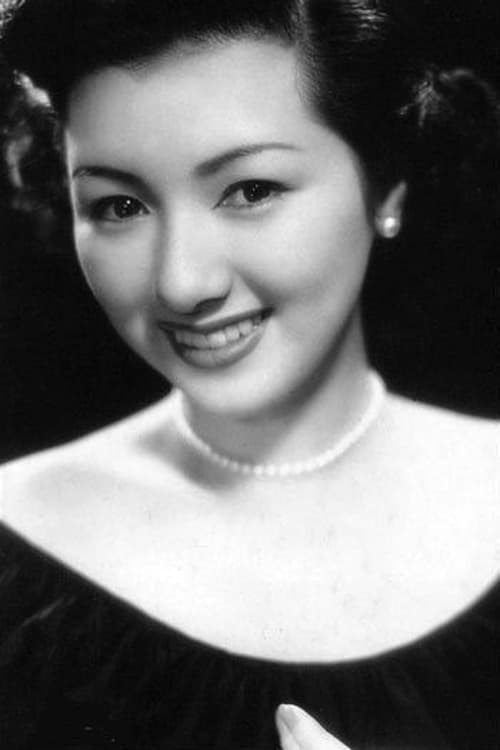
Yukie Kawase
京浜工業地帯の一角で鉄工所を経営している川瀬周三は、昭和41年になって、めっきり身体のおとろえを覚え、工場の実務を26歳になる一人息子の武志に譲った。そして、秋には、妻・雪枝の郷里から田切杏子を迎え、結婚式をひかえていた。順風満帆、周三にはおだやかな老後が残されているだけのように思えた。昭和41年5月、武志は、友人吉川と近くの釣り堀に出かけた帰り道、ある若者とすれ違った瞬間、腹部を刃物で刺され「お父さん、口惜しいよ、こんなことで死ぬなんて、仇は必ずとってくれよ」と言うと、周三の腕の中で息たえた。
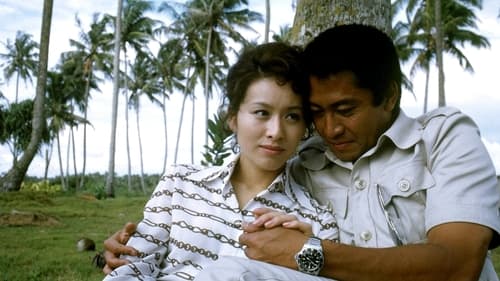
A Japanese businessman is sent to Sri Lanka and meets a beautiful Japanese woman with a past. They befriend an old Japanese-Indian widow who has an estranged son in Japan.

Akiko (Nobutoshi's wife)
A woman looks after her father in law.

Kaede
An abandoned temple in the mountains outside of the old capital city of Kyoto is the scene of a fated meeting between a traveling priest, two women, and a vicious killer. Bloody violence erupts whenever strangers approach the temple. Can the traveling priest bring his belief in the Buddha and rid the three temple residents of the devils that hold their souls?

Otsugi, Umpei's mother
The disturbing story of a physician who conducted the first operation with general anaesthetic, and the women in his life who are both so determined to win his love that they volunteer as subjects for his experiments

Kuniko, the Mother
When an only child is struck by a car and dies, the child's mother seeks vengeance against the driver in this thrilling drama. The car was driven by the wife of a company president who is having an affair. The woman's husband manages to buy silence about the incident, but the victim's mother discovers the identity of the driver. After she secures a job in the home of the company president and his philandering spouse, the woman plans to murder the couple's son when he reaches the age of her late son.
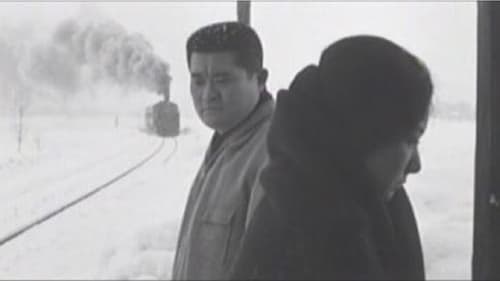
Ine
Young widow Ine is suffering under the harsh treatment of her mother in law. As a former Geisha, Ine had struggled to be accepted into the well-established Rokujo family from the beginning. With the support of Jiro, a young man Ine's late husband had saved from homelessness as a young boy, Ine tries to keep the family's heritage of silk processing alive. Their close relationship soon causes gossip among the villagers and threaten Ine's position in the family even further ...
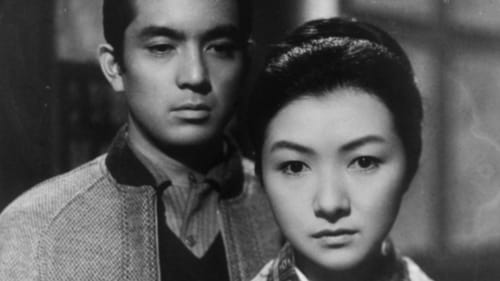
Reiko Morita
After a bombing raid destroys the family store and her husband, Reiko rebuilds and runs the shop out of love stopped short by destruction.

Nobuko Shimizu
A woman remember's her own marriage when dealing with the love life of her son.

Komako Kuwata
Story of a resourceful hobo (Kobayashi), a con woman (Takamine) who pretends to be a victim of the Nagasaki A-bomb, and two orphaned children who become a most atypical Japanese family.
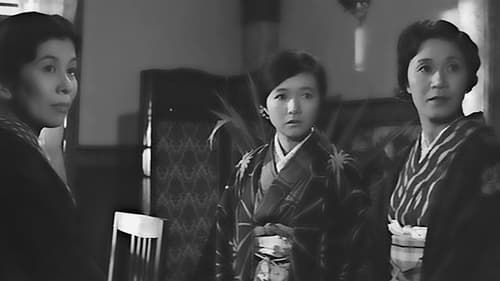
Fumiko Hayashi
Considered one of the finest late Naruses and a model of film biography, A Wanderer’s Notebook features remarkable performances by Hideko Takamine – Phillip Lopate calls it “probably her greatest performance” – and Kinuyo Tanaka as mother and daughter living from hand to mouth in Twenties Tokyo. Based on the life and career of Fumiko Hayashi, the novelist whose work Naruse adapted to the screen several times, A Wanderer’s Notebook traces her bitter struggle for literary recognition in the first half of the twentieth century – her affairs with feckless men, the jobs she took to survive (peddler, waitress, bar maid), and her arduous, often humiliating attempts to get published in a male-dominated culture.
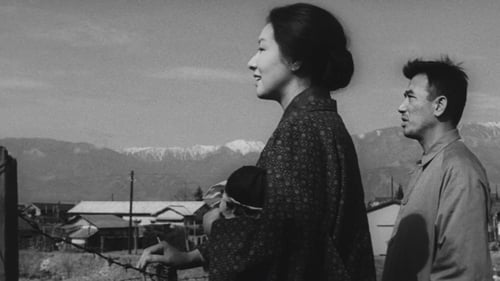
Torae Nonaka
A demobilized soldier becomes a day laborer with a road construction gang, and his wife goes to work to bolster their income. Their modest dream is to see their son grow and to be happy as a family.

Costume Supervisor
In 1919, a group of Japanese immigrants arrives in Hawaii. Among them Yoshio Inoue and his wife Kishimo and Sumi, a young woman ready to get married soon. With the soil that is hard to work and the subtroipical climate, the immigrants have to cope with a hard life. But after years of hard work, Yoshio finds work as a teacher while his wife manages to open a small grocery store. But with the war around the corner, life becomes more and more complicated for the Japanese immigrants in a foreign country.

In 1919, a group of Japanese immigrants arrives in Hawaii. Among them Yoshio Inoue and his wife Kishimo and Sumi, a young woman ready to get married soon. With the soil that is hard to work and the subtroipical climate, the immigrants have to cope with a hard life. But after years of hard work, Yoshio finds work as a teacher while his wife manages to open a small grocery store. But with the war around the corner, life becomes more and more complicated for the Japanese immigrants in a foreign country.
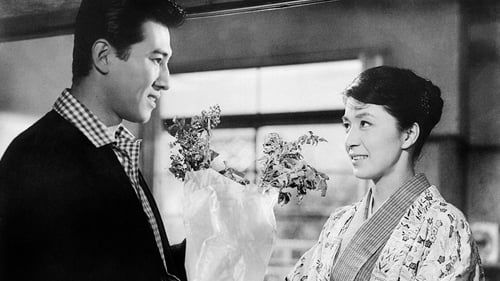
Yoshiko, Ishikawa-ke no yome
Drama about the lives of the five daughters and daughter-in-law of a store owner.
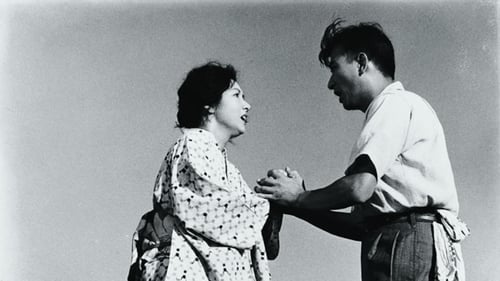
Sadako
The year is 1932, and a woman, whose tenant-farmer fiancé is fighting in China, is raped by the landowner's son, who has returned from the war with a crippling injury, and then forced into marriage with him. In four more chapters, presented over three decades, their children undertake their own searches for love, while the parents try to make each other as miserable as possible.

Miho Nishigaki
In "The Other Woman" the children of a distinguished professor find that the woman they have come to regard as their racy and slightly disreputable Ginza aunt is really their mother.
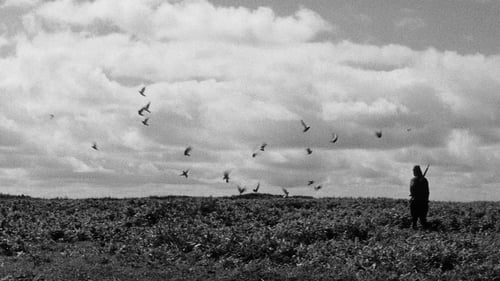
Hinanmin no Onna
After the Japanese defeat to the Russians, Kaji leads the last remaining men through Manchuria. Intent on returning to his dear wife and his old life, Kaji faces great odds in a variety of different harrowing circumstances as he and his fellow men sneak behind enemy lines.

Akiko Katayama
The story is of two people. One is deaf, the other deaf and mute. They marry after meeting at a school reunion, and the film follows their trials and tribulations ... and joys.
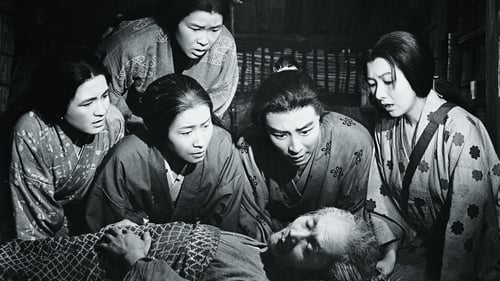
Okei
In a time of continuous civil wars ravaging the fields of feudal Japan, the eldest son of a very poor peasant family, living alongside the bridge over the Fuefuki river, decides to serve a warlord to escape his miserable condition, being soon followed by his younger brothers. Although not all the men of the family take this tragic path of death, women of the family will be doomed to endure the pain of loss during the next five generations.
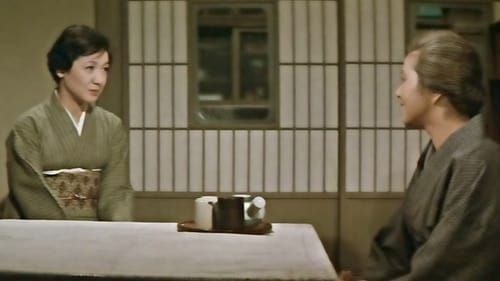
Sakanishi Kazuko, Shingo's wife
Sanae is left a widow after her prestigious husband dies, but holds the proceeds of a million yen insurance policy. Being childless, her former in-laws have no objection to her return to her own family.

Costume Design
夫を亡くした圭子は、外国人マスターが経営する銀座のバー“ライラック”の雇われマダムだった。よく店に来ていた利権屋の美濃部が、かつて圭子の下で働いていたユリに店を持たせ、そちらへ頻繁に出入りしているようだ。マスターからはユリのように体を張って売り上げを回復させろと言われてしまう。ある日、狂言自殺をするつもりだったユリが本当に死亡した。葬儀の席で圭子は美濃部に食ってかかるが、血を吐いて倒れてしまう。酒の飲み過ぎで胃潰瘍にかかっていたのだ。やがて圭子は客に体を許すようになるが、その度に裏切られてしまう。

Keiko Yashiro
夫を亡くした圭子は、外国人マスターが経営する銀座のバー“ライラック”の雇われマダムだった。よく店に来ていた利権屋の美濃部が、かつて圭子の下で働いていたユリに店を持たせ、そちらへ頻繁に出入りしているようだ。マスターからはユリのように体を張って売り上げを回復させろと言われてしまう。ある日、狂言自殺をするつもりだったユリが本当に死亡した。葬儀の席で圭子は美濃部に食ってかかるが、血を吐いて倒れてしまう。酒の飲み過ぎで胃潰瘍にかかっていたのだ。やがて圭子は客に体を許すようになるが、その度に裏切られてしまう。
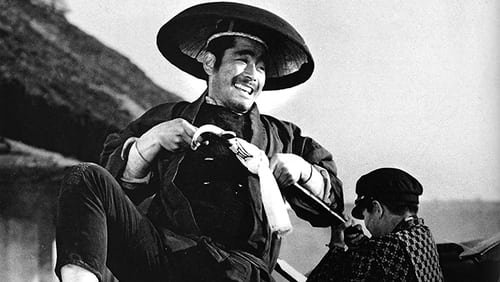
Yoshiko Yoshioka
The story of Muhōmatsu, a rickshaw man who becomes a surrogate father to the child of a recently widowed woman.
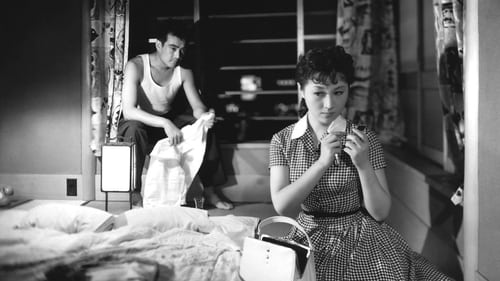
Sadako Yokokawa
東京の深川で2人組の犯人による質屋強盗殺人事件が発生。主犯は逮捕されたものの、共犯の石井は目下逃走中。彼が昔の恋人に会いたがっていたという主犯の証言をもとに、2人の刑事、柚木と下岡が、暑い夏のさなか、横浜駅から満員の夜行列車に乗り込み、九州の佐賀県まで出向くことに。彼らは、いまや人妻となっているさだ子という女性を見張るため、彼女の家の真向かいにある宿の2階の部屋に陣取り、辛抱強く張り込みを続ける。
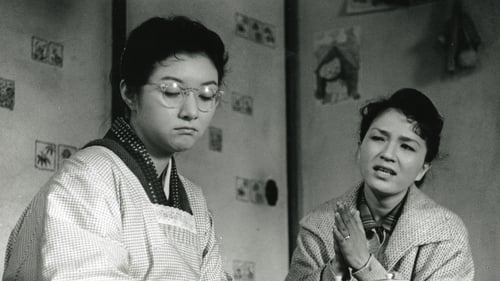
Yuriko
The plans of a trio of burglars are continually thwarted by the arrival of visitors to the house they plan to rob.

松竹が誇る天才監督・木下惠介監督が、日本縦断ロケを敢行。高峰秀子と佐田啓二の主演により、同名の主題歌と共に大ヒットを記録した名作。灯台守一家の25年にわたる波乱に満ちた生活と愛情を、繊細かつ力強いタッチで描いた壮大なる年代記。 灯台守の夫と連れ添う妻の半生を描いた作品。なくてはならない大切なものを教えてくれる、心温まる作品。
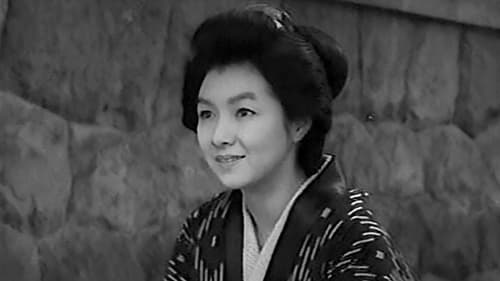
Oshima
A woman marries, gives birth to a stillborn child, and divorces, falls in love with a hotel-keeper, only to find herself subordinated to his drive for success, takes up with a tailor who cannot console himself with her strong personality.
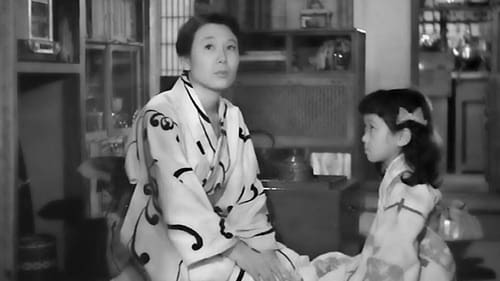
Katsuyo, Otsuta's daughter
Otsuta is running the geisha house Tsuta in Tokyo. Her business is heavily in debt. Her daughter Katsuyo doesn't see any future in her mothers trade in the late days of Geisha. But Otsuta will not give up. This film portraits the day time life of geisha when not entertaining customers.

Kiyoko
Kiyoko (Takamine Hideko) and her husband want to open a coffee shop. She becomes increasingly close to the bank clerk (Mifune Toshiro) she's asked for a loan.

Directed by Yoshiro Kawazu

The story of Yoshinaka during the tumultuous period of warring related to us in the Heike Monogatari. Close in setting to Kinugasa’s famous Gate of Hell (1953).

Akiko Kaneda
Portmanteau film about young lovers.

Fuyuko Terada
A young widow, made world weary by her abusive, neglectful husband, finds herself in a minor scandal when she's seen with her intense, no-nonsense childhood sweetheart.
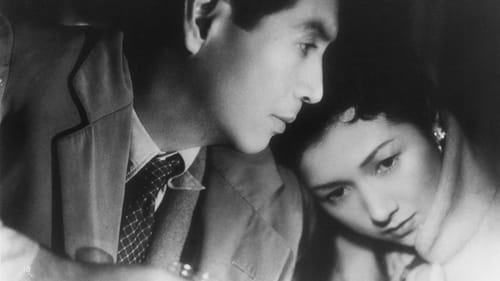
Yukiko Koda
A married Japanese forester during WWII is sent to Indochina to manage forests. He meets a young Japanese typist and promises to leave his wife. He doesn't and after the war, she turns up and the affair resumes.
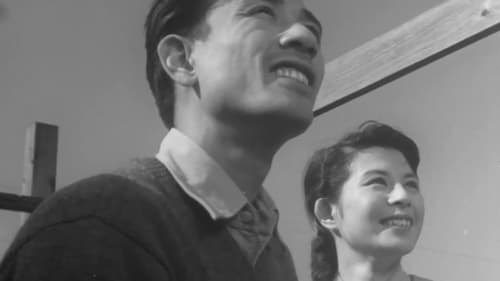
Yasuko, Ryoichi's sister
This drama of middle-class life in postwar Japan tells the story lower-middle-class workers in the city of Kawasaki, and their troubles and travails.

Ôishi Sensei
大石久子は昭和3年、新任教師として瀬戸内海にある小豆島の分校に赴任した。久子が受け持つことになった一年生は十二人で、みな澄んだ瞳をしていた。やがて久子は本校へ転任することになった。しかし貧しい村の教え子たちは、一人として望み通り進学することができなかった。戦争をはさんで島の分校に戻った久子は、そこでかつての教え子たちと再会する。

Yoshie Izushi
A student at a woman's university takes a controversial action against the school's old-fashioned doctrines.

Otoma
A young woman, who must support her father as a middle-aged man's mistress, finds herself falling in love with a student closer to her age.

Senko Azuma
かつて東京・千住に立っていた「お化け煙突」の下で暮らす人々の日常を描いた人間ドラマ。。

Carmen
Carmen falls in love with an artist in this sequel to Carmen Comes Home. The film is noted for being entirely shot with canted (Dutch) camera angles.
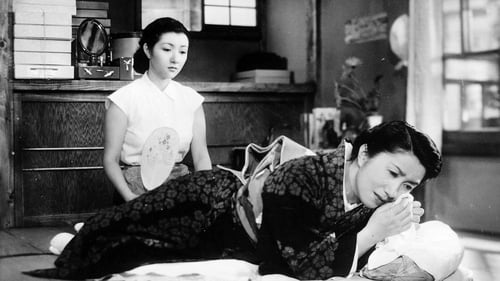
Kiyoko
The story of Kiyoko, a young woman who has successfully managed to make a break with her dysfunctional family who have been trying to arrange a marriage for her with a disagreeable man whom she has rejected.

Buntaro, the president of a food trading company got tired of the day-to-day routine of life. The new secretary, Nobuko, suggested her "shacho-san" (the president) run away from the job. Nobuko took Buntaro to her home and introduced him to her own family as friend, "Sachio-san"...

Atsuko Takimoto
Atsuko is an office secretary who is also her family's primary source of income and caretaker in postwar Japan.

1951 Japanese movie

Tomoko, Kosaku's daughter
The Ueki family may not be wealthy, but smiles are never in short supply. The father is awarded prize money for 25 years of service to his workplace, but has it stolen on the way home from the ceremony...
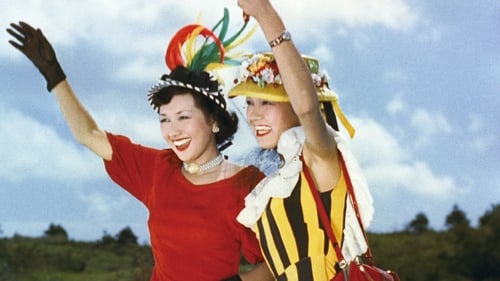
Kin Aoyama aka Lily Carmen
A girl who'd left her hometown for the exciting adventure of the big city returns home years later for a visit, soon somehow causing scandal.

Director Hiroshi Inagaki's early version of the life and death of famed swordsman Sasaki Kojiro. Otani Tomoemon gives a brilliant performance as Sasaki Kojiro, who rises from humble beginnings to national fame, and a young Toshiro Mifune appears as the legendary master swordsman Miyamoto Musashi for the first time and essentially sets the standard for future portrayals.This masterpiece is based on the original story as written by noted author Murakami Genzo and is far superior to any other versions. Following Kojiro from his earliest days through his fateful meeting with Musashi, this movie is filled with exciting and dramatic moments culminating in the best version of the final duel ever seen on film.

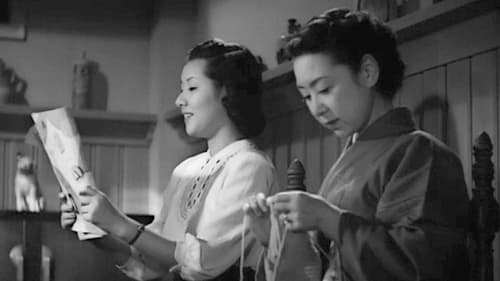
Mariko
Setsuko is unhappily to Mimura, an engineer with no job and a bad drinking habit. She had always been in love with Hiroshi but both of them failed to propose when Hiroshi left for France a few years ago. Now he is back and Mariko (Setsuko's sister) tries to reunite them. She too is secretly in love with Hiroshi.
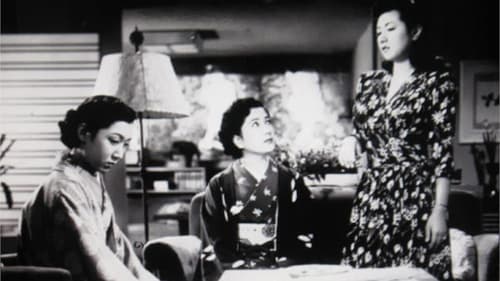
Taeko
谷崎潤一郎の同名小説を八住利雄が脚色し阿部豊が監督した文芸作。大阪を舞台に美しい四姉妹が織りなす物語。『細雪』はこの後、島耕二(1959年)と市川崑(1983年)により映画化された。四女の妙子を演じた高峰秀子が抜群の演技力を見せる。洪水のシーンに特撮が使われ、豪華な衣装が多数用意されるなど、当時としては破格の製作費がかけられたという。 昭和初期の蒔岡家。長女の鶴子は夫と共に古い暖簾を守り、次女の幸子は婿養子を迎えて芦屋に分家、三女の雪子は幸子夫妻から縁談を持ちかけられるが上手くいかない。四女の妙子は恋仲になったカメラマンが死亡したことから、自暴自棄になってしまう…。

Shizuko Kasagi and Hideko Takamine star as young women who try to raise money for a needy old friend by becoming wandering singers who work for tips in Tokyo's Ginza nightlife district.

Japanese adaptation of Marcel Pagnol's play "Marius", set in early XXth century Japan.

Ranko Komaki
A young man rents an apartment in Tokyo and discover it was built by his father. He falls in love with the daughter of the mistress of the house and decides to marry her. Only to discover that his father is is in debt and wants him to marry Ranko so that she may help his company by granting 1.5 million yen. Teruko decides to borrow money from a greedy bar owner who lends her money on certain conditions and photographs her without her consent. A love traingle forms between Koroku, Ranko, and Teruko. Things complicate when Koroku marries Teruko and Tsugawa threatens them for the money causing many twists and turns.

Kôfuku eno shôtai - Invitation to happiness

Onatsu
Jidai-geki by Ryo Hagiwara

Lord for a Night is a 1946 Japanese film directed by Teinosuke Kinugasa.

Takamine
Two sisters, one a dancer and the other a script supervisor at a big movie studio, become embroiled in union activities when a strike is called in sympathy with striking railroad workers, one of whom boards with the sisters and their parents. The girls' father argues with them about their strike, but finds his views changing when he himself loses his job.

Akako Tatsuta
Reputedly based on Frank Capra’s 1939 film Mr. Smith Goes to Washington, A Descendant of Tarô Urashima is about a repatriated soldier who becomes populist politician in the Japanese Happiness Party.

1946 Toho film directed by Kiyoshi Saeki
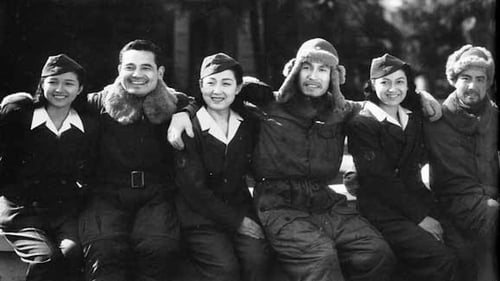
The story of an airport and its air traffic control crew in a remote and northern Japanese town. Three of the air traffic controllers are female with one of them working with her dead fiancé's sister. The engaged man had gone to war and never returned.

Based on a short story by Dazai Osamu, produced under the national film law. The film's hero falls in love with the youngest daughter of a family he is visiting to arrange an engagement for his friend who has been drafted to fight in the war.

Otae
歌舞伎や講談で有名な伊達騒動を背景に、居合抜きの名人、三尺左吾平に「喜劇王エノケン」こと榎本健一が扮し、騒動解決に尽力する姿を喜劇的に描いた作品。刀も身長も三尺三寸で足が速いだけが自慢の左吾平が、殿様たちに気に入られ、用事を頼まれていくうちに、伊達騒動に巻き込まれていく。

Yamaneko
A sixteen-year-old who had been living on her own since her mother died, frequently gets in trouble with the police. She gets sent to an "institute" for young girls in the countryside. There the residents grow their own food, cook and clean for themselves, and are taught language, music, and sewing. While there the young girl slowly begins to form friendships and come out of her shell.

Kaido-jo

Chiyoko, Goro's sister
Hanakosan (1943, TOHO, MAKINO Masahiro), a thoroughly light and joyful musical comedy, influenced by Busby Berkeley films, against the national policy under the wartime, was made into a film from comic serials by SUGIURA Yukio published in a magazine.

The Opium War is a 1943 black-and-white Japanese film directed by Masahiro Makino. "Ahen senso" in Japan refers to the First Opium War. The story of the film concerns this war.

Taeko
1942 adaptation of Izumi Kyoka's novel.

A bizarre murder at a hot springs resort threatens to disrupt an Edo detective's (Hasegawa) vacation. When his hot-blooded wife (Yamada) starts snooping around, however, he finds himself reluctantly drawn in to the case.

Hideko
What is marriage? Young couple in match-making wanted to know before they decide. They visited married couples of sisters and brothers. Love comedy in 1942.

A 1942 Jidaigeki by the veteran jidaigeki filmmaker Kunio Watanabe about the legendary warrior Musashibo Benkei
with Hideko Takamine portraying Minamoto no Yoshitsune (who is, of course, a man).
The film climaxes in the famous encounter/fight btw Benkei and Yoshitsune at the Gojo Bridge.
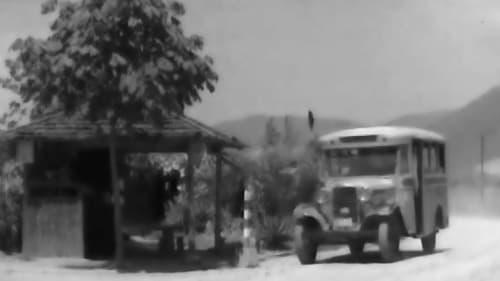
Okoma, the bus conductress
Okoma, a witty young woman working as a conductor in an old, rickety bus in Kōfu, Yamanashi (rural Japan), has a creative idea that could avert the dwindling number of passengers when her job and the bus company itself are at stake.

Sachiko Kamata
A "slice-of life" film about a group of high school girls in 1940s Japan.

Jurobei, a kaisen tonya (wholesaler in port) in Awa, was wronged and killed on the day of the Dance Festival by the evil merchant & the chamberlin. His brother (Kazuo Hasegawa) vowed vengeance on the day of his brother's death. So every year the villains are worried during the Awa Dance Festival (which is part of the Obon festival), but nothing has ever happened, until seven years later...

Ine Onoda
Ine Onoda, the eldest daughter of a poor family of farmers, raises a colt from birth and comes to love the horse dearly. When the horse is grown, the government orders it auctioned and sold to the army. Ine struggles to prevent the sale.

Feature film.

Princess
Second part of the Comedy-Musical about the legendary Monkey King.

Princess
Comedy-Musical about the legendary Monkey King.
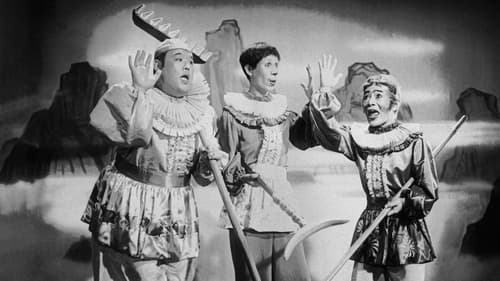
Princess
A legendary pre-war comedy operetta starring Enomoto Kenichi, Hideko Takamine and Li Xianglan. The Sanzo Ikkou continues its westward journey, on a mission to prevent a demonic resurrection. As Genjo Sanzo, Cho Hakkai, Sha Gojyo, and Son Goku (Kenichi Enomoto) fight their way to their goal, their path is fraught with internal strife.

9th directorial work by Yamamoto Satsuo.

Hideko Takashima
主力選手が出征し、成績が上がらない職業野球団アトラス軍。監督の姪・秀子は野球好きのおてんば娘。秀子は応援歌を作ってスタンドからエールを送る。
そのおかげかアトラス軍は大勝利。しかし、秀子の両親は彼女が球場に行くのには反対だった…。当時のプロ野球のスター選手たちが多数出演した青春映画。

Based on the book Heaven and Maiko by Yoshiya Nobuko, it is the story of two girls of different family backgrounds in Osaka.
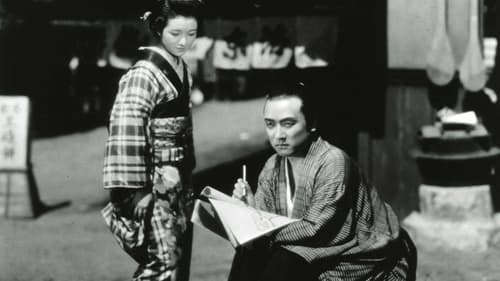
Otsu
A forceful indictment of the devastating effects of war and nationalistic fanaticism on the average man, who, in the face of the absurdity of violence, is reduced to apathy or victimhood.

Japanese film based on the life of writer Ichiyo Higuchi (1872-1896).

My Daughter's Only Wish tells the story of a poorly paid and clumsy office clerk, played with much comedic talent by Atsushi Watanabe. His biggest problem: His daughter Hideko is too clever and is expected by her teachers to enter the school for higher girls after graduating from primary school. But how is our poor clerk supposed to pay the school fees? How does poor Hideko feel about the situation? How can they cope with the envious colleagues who have less brighter daughters? And - an important question for Hideko's mother - what will the neighbours think? What's the point about getting a good education for girls anyway?

亡くなった父親の財産を母子が食いつぶし、唯一の頼りは叔父の株投資。しかしその叔父も相場で失敗して、追い詰められるが、末っ子の娘以外は現実を見ようとしない。

Shigeko
Chocolate and Soldiers (チョコレートと兵隊, Chokorēto to Heitai) is a 1938 Japanese war film directed by Sato Takeshi and one of the most effective Japanese propaganda films of the late 1930s. The American director Frank Capra said of Chocolate and Soldiers "We can't beat this kind of thing. We make a film like that maybe once in a decade. We haven't got the actors. It shows the common Japanese soldier as an individual and as a family man, presenting even enemy Chinese soldiers as brave individuals. It is considered to be a "humanist" film, paying close attention to the human feelings of both the soldier and his family. Cinema theorist Kate Taylor-Jones suggests that Chocolate and Soldiers provided "a vision of the noble, obedient and honourable Japanese army fighting to defend the emperor and Japan.
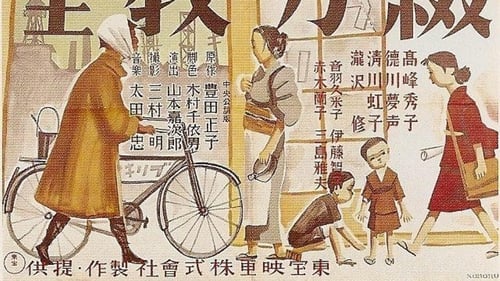
Masako
Based on an autobiographical story by Toyota Masako.

A colourful study of theatrical life. Two acting troupes vie for the Kyoto market during the Genroku Era. Tojuro, an extremely popular actor, feels the limits to his acting when he sees his rival troupe put on a new type of play featuring its star, Nakamura. He has the famous Chikamatsu write a new play but cannot get used to the character he is to play in it.

Yuri
A half brother and sister work at a hotel in Hakone respectively as a porter and a souvenir shop clerk. They are close. One day a woman named Hasegawa checks into the hotel in order to recuperate in a calm environment with fresh air. She is the mother of the store employee. The mother and daughter were separated due to the Kanto earthquake. The girl was practically raised by her older half brother.

Hide-chan (Hideko Takamine) and her family are on a trip to Tokyo. While visiting a fairground, a pickpocket (Kamatari Furukawa) steals the father's wallet. While everyone is trying to hunt down the thief, Hide-chan decides to make the most of it and enjoy her stay, while the thief and his main pursuer (Akira Kishii) play hide-and-seek among the funfair's spectacles and freakshows

Kayo and Kuniko graduated from girls' school together and are as close as sisters. Kuniko's fiancé, Minakami, feels something that attracts him deeply towards Kayo. On the other hand, Kayo prays for the happiness of her best friend and marries a very ordinary man. However, at one point, this mediocre but increasingly ferocious husband died in an accident ... A triangular love story develops depicting a woman's heart that sways between love and morals. Based on a novel by Nobuko Yoshiya, there were originally two parts to the film (If Spring Comes & Fall Once Again), both supposed to be 85 minutes, but apparently what we have now is this 103-minute amalgam of the two.

Hamako
Three men fall in love with the same young girl who works in a tonkatsu restaurant in the Shitamachi district of Tokyo.

The eldest daughter of a noble family is in love with an aviator while being courted by a fellow aristocrat she thinks is a dullard. Told from the perspective of Ryota. In this second part, we learn that Akemi is pregnant...

The eldest daughter of a noble family is in love with an aviator while being courted by a fellow aristocrat she thinks is a dullard. This part is told from the perspective of Akemi.

Momoyo
Part two of Shimizu's major silent Seven Seas, a family drama of the intertwining fates of the rich, decadent Yagibashis and the far less prosperous Sone family.

Mitsuko's child
Film by Hiroshi Shimizu, featuring an early role for frequent Ozu and Naruse collaborator Hideko Takamine.

Momoyo Sone
The film is a lengthy work interweaving characters from different backgrounds and social strata in a narrative centered around the experiences of its heroine, Yumie Sone. Over two hours long, Seven Seas was released theatrically in two parts, with the first part entitled "Virginity Chapter" coming out in December 1931, while the second part, "Chastity Chapter," followed in March 1932. Near the beginning of the narrative, at a garden party given by the wealthy Yagibashi family in Tokyo, Yumie meets Takehiko, the Yagibashis' playboy son and the brother of Yumie's fiancé, Yuzuru. Yumie, a young middle-class woman, lives with her ailing father, a retired ministry official, an older sister, and a younger sister still a child (played by a very young Hideko Takamine). Takehiko, who has just returned from a trip to Europe, is attracted to Yumie and contrives to have her stay overnight at his family's mansion where he takes advantage of her.
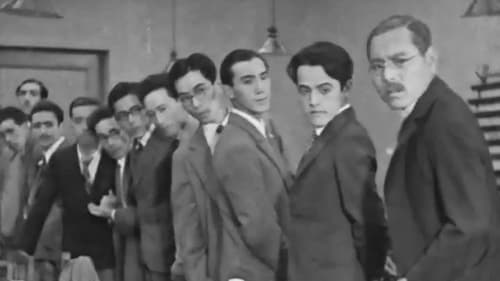
Sono Choujo
Mr. Omura, a teacher, leads a group of male students in an outdoor drill. One slight, comic young man, Shinji Okajima, has no shirt under his jacket; he scratches at fleas and makes faces behind Omura's back. Jump ahead several years, Shinji is married with three children. He sells insurance, and on the company's annual bonus day, he protests when an older worker is fired. Shinji loses his own job as a result, and he and his wife must find ways to cope. Lassitude, pride, the demands and needs of young children, and relationships from bygone school days all play a part in the outcome of their struggle.

Iwao

Haruko
The 1929 Japanese film "Mother" which helped child actress Hideko Takamine become a star.
